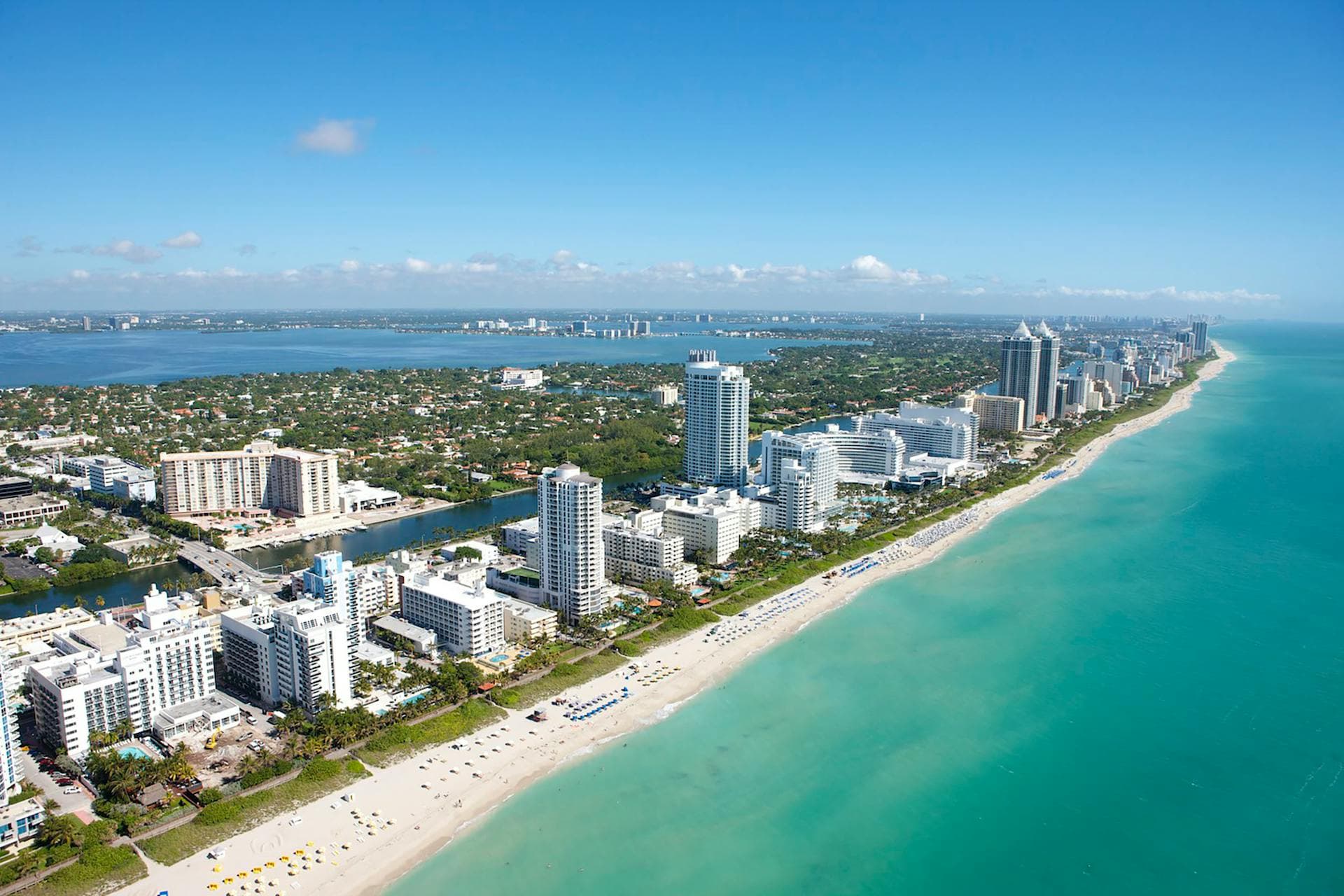Miami vs. Chicago Cost of Living (2025): Sunshine, Salaries, and City Life
Thinking of a move to Miami or Chicago? Our 2025 analysis breaks down the essential differences in cost of living, from housing and taxes to lifestyle and job markets. Make an informed choice between these two iconic American cities.

Choosing between the vibrant, sun-drenched shores of Miami and the historic, architectural grandeur of Chicago is a classic American dilemma. One offers a life of endless summer and Latin-Caribbean flair; the other boasts world-class culture, distinct seasons, and a gritty, Midwestern heart. But beyond the stereotypes, how do these two iconic cities stack up financially in 2025? This comprehensive guide dives deep into the cost of living, lifestyle, and economic realities of both Miami and Chicago to help you make an informed decision.
At a Glance: Miami vs. Chicago in Numbers
Before we delve into the details, here’s a high-level comparison. While individual expenses vary, Chicago is generally considered more affordable than Miami, which has seen significant price appreciation in recent years.
| Metric | Miami, FL | Chicago, IL | Key Takeaway |
|---|---|---|---|
| Overall Cost of Living | ~15-20% higher | Lower | Your dollar stretches further in Chicago. |
| Median Rent (1-BR) | $2,600 - $3,200 | $1,800 - $2,400 | Housing is the biggest cost driver in Miami. |
| State Income Tax | 0% | 4.95% (flat rate) | Major tax advantage for high earners in Miami. |
| Average Commute | Longer, more traffic-congested | Shorter, robust public transit | Chicago offers a superior public transit system. |
Cost of Living Breakdown: Where Your Money Goes
Housing: The Great Divide
Housing is the most significant factor separating these two cities financially. Miami's real estate market has experienced a surge in demand, pushing prices to new heights. Rent for a one-bedroom apartment in desirable neighborhoods like Brickell or South Beach can easily surpass $3,000. In contrast, Chicago offers a wider range of options. While downtown neighborhoods like River North are pricey, areas like Lakeview, Lincoln Park, or Wicker Park provide a vibrant city lifestyle for a significantly lower cost.
Taxes: A Clear Winner for High Earners
Florida's lack of a state income tax is a powerful lure. For a high-income individual, this can translate to thousands of dollars in annual savings compared to Illinois's 4.95% flat tax. However, you must consider other taxes. Property taxes in some Miami-Dade areas can be substantial, and sales taxes are comparable. The income tax advantage is real, but its impact depends entirely on your earnings bracket.
Transportation: Getting Around Town
Chicago has one of the best public transportation systems in the country. The 'L' train and extensive bus network make it possible to live comfortably without a car, saving you money on insurance, gas, and parking. Miami is a car-centric city. While it has public transit options like the Metrorail, they are less comprehensive, and traffic congestion is a daily reality. The cost of owning and operating a car is a mandatory expense for most Miamians.

Miami's vibrant lifestyle comes with higher housing and transportation costs.
Lifestyle, Culture, and Job Market
The Vibe: Beach vs. City Grid
This is where the decision becomes less about numbers and more about personality. Miami offers a fast-paced, international, outdoor-focused lifestyle. It's a city of glamour, beaches, and a vibrant nightlife deeply infused with Latin-Caribbean culture. Chicago is a quintessential "big city" with a world-class arts scene, iconic architecture, legendary sports teams, and a more grounded, four-seasons identity. Its cultural institutions, from the Art Institute to its legendary blues clubs, are unparalleled.
Job Market
Both cities have robust and diverse economies. Chicago is a long-established hub for finance, consulting, logistics, and a growing tech scene. Miami has emerged as a major center for international trade, finance (particularly for Latin America), and is rapidly growing as a "new tech" hub, attracting cryptocurrency and venture capital firms.
Frequently Asked Questions
Is Miami or Chicago more affordable to live in?
Chicago is generally 15-20% more affordable than Miami overall in 2025. Chicago offers significantly lower housing costs (median 1-BR rent: $1,800-$2,400 vs Miami $2,600-$3,200), cheaper groceries, and lower transportation expenses. However, Miami has a major advantage for high earners: zero state income tax compared to Chicago's Illinois flat 4.95% rate. For someone earning $150,000, that saves nearly $7,500 annually in Miami. Your dollar stretches further in Chicago for housing and daily expenses, but high earners may find Miami more advantageous tax-wise.
Should I move to Miami or Chicago for better job opportunities?
Both cities have robust, diverse economies but different strengths. Chicago is a long-established hub for finance, consulting, logistics, manufacturing, and growing tech - offering stability and deep industry networks. Miami has emerged as a major center for international trade, Latin American finance, and is rapidly growing as a "new tech" hub attracting cryptocurrency, fintech, and venture capital firms. Choose Chicago for traditional corporate roles with established career ladders. Choose Miami if you work in international business, are in emerging tech sectors, or value the networking opportunities in a fast-growing market. Both cities offer strong employment prospects in their respective specialties.
What is the biggest cost difference between Miami and Chicago?
Housing is by far the biggest cost driver difference. Miami median 1-bedroom rent ($2,600-$3,200) is roughly 40-50% higher than Chicago ($1,800-$2,400). Home prices follow similar patterns - Miami median home around $550,000-$650,000 versus Chicago $320,000-$380,000. This housing gap alone accounts for the majority of the 15-20% overall cost of living difference. Groceries and utilities are moderately more expensive in Miami (8-15% higher), but the housing premium is what makes Miami significantly pricier. Chicago offers more housing value per dollar spent.
How does the tax situation differ between Miami and Chicago?
The tax difference is substantial for high earners. Miami (Florida) has ZERO state income tax, while Chicago (Illinois) has a 4.95% flat state income tax on all income levels. For a $100,000 earner, that is $4,950 annual savings in Miami. For $200,000, it is $9,900 savings. However, property taxes in Illinois can be high (effective rate often 2-2.5% of home value), while Florida property tax averages 1-1.5%. Sales tax is similar (6-7% range in both). The income tax advantage makes Miami particularly attractive for high-earning professionals, remote workers with location-agnostic salaries, and business owners. For middle-income earners, Chicago's lower housing costs may offset the tax difference.
Which city has better weather - Miami or Chicago?
This depends entirely on personal preference. Miami offers year-round warmth (winter lows 60s-70s°F, summer 80s-90s°F), abundant sunshine, and beach access 12 months a year - ideal if you love consistent warm weather and outdoor activities. However, summers are hot, humid, and bring hurricane season (June-November). Chicago experiences four distinct seasons: beautiful springs and falls, warm summers (70s-80s°F), and cold, snowy winters (often below freezing, down to 0-10s°F). If you enjoy seasonal variety, fall foliage, and snow activities, Chicago delivers. If you prefer escaping winter entirely and embrace subtropical climate, Miami is the choice. Consider your tolerance for humidity vs. cold when deciding.
Conclusion: Which City is Right for You?
Choosing between Miami and Chicago comes down to a trade-off between cost and lifestyle.
- Choose Miami if: You are a high earner who can maximize the zero-income-tax benefit, you crave a year-round warm climate and beach lifestyle, and you thrive in a fast-paced, international environment.
- Choose Chicago if: You value affordability and a lower cost of living, you prefer having four distinct seasons, you want access to world-class public transportation, and you enjoy a dense, historic city with a deep cultural fabric.
Ultimately, the best way to decide is to run the numbers for your specific situation. Use our Cost Living Explorer calculator to compare your own salary and see how far it will stretch in each city.
Related Articles
Understanding the Cost of Living Index: A Comprehensive Guide
Learn how cost of living indices are calculated and how to use them effectively when planning a move.
How Remote Work is Changing Cost of Living Considerations
Explore how the rise of remote work has transformed how people choose where to live based on cost of living factors.